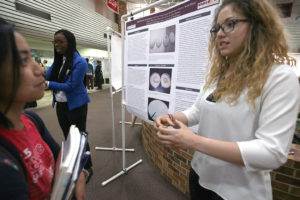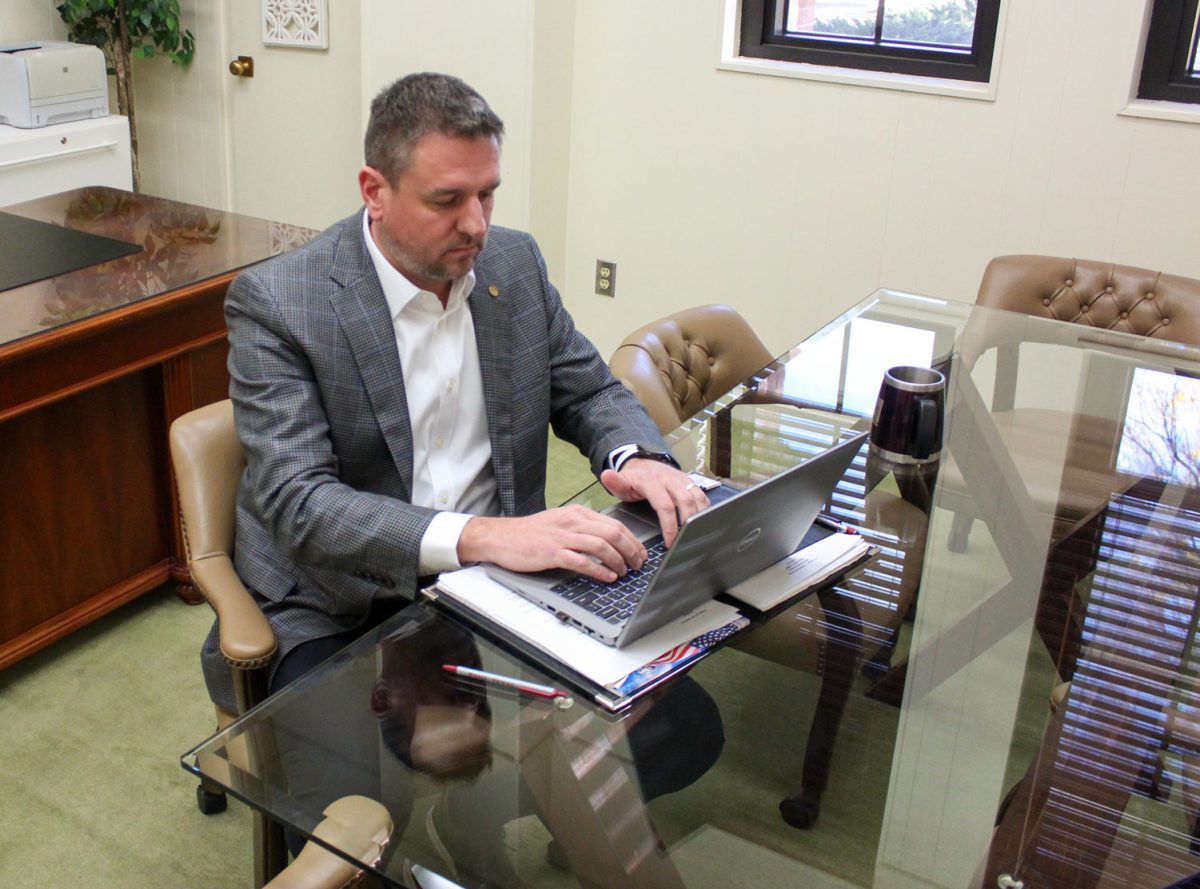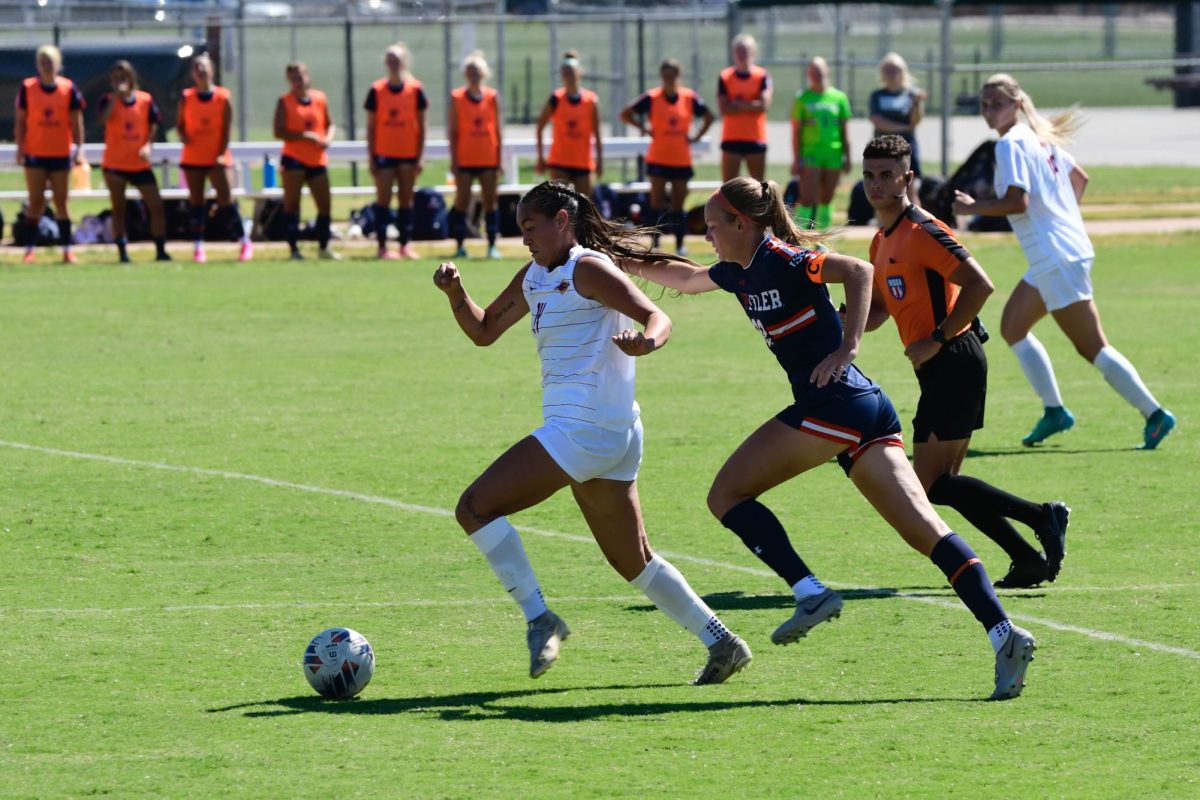
Once each semester the Clark Student Center Atrium becomes the setting for undergraduate research presentations. People presenting, people listening, people looking around. Dozens of posters fill every foot of the room, organized in a path that all students can walk through to explore what their peers have researched.
Clayton Meyers, marketing sophomore, attended the spring exposition of the Enhancing Undergraduate Research Endeavors and Creative Activities program, curious about a friend research project.
“I came to support a friend and to get a further understanding for remittences [topic of the project attended],” Meyers said. “It was absolutely worth attending. The EURECA presentations are something a class won’t teach you.”
Magaly Rincon-Zachary, director of undergraduate research, said she believes that researches are an important tool for undergraduates and encourages students to participate.
“Research are very important for students,” Rincon-Zachary said. “Reading others research opens their minds, develops critical thinking skills and also increases students’ knowledge on topics they are interested in.”
Through EURECA program in fall and spring semesters and UGROW program in the summer, students have an opportunity to work alongside faculty members to develop a research on a chosen topic while getting awarded with scholarships up to $2,000 to complete their projects.
“This is my first semester mentoring a student,” Ronald Young, accounting professor and EURECA mentor, said. “I find these research extremely valuable. Everything that makes students think and use their brain is a great thing.”
The advantages of participating in such projects reflect on students’ both academic and working career. According to Rincon-Zachary, research strongly implements study-methods, but most importantly employers take into great account these type of experiences if they feature in applicants resumés.
Students can sign up for undergraduate research any time throughout their college career. Incoming freshman are required to have a minimum ACT of 25, or SAT of 1130, or be within the top 25 percent of their high school graduating class. Later on, enrolled students will be required of a minimum overall GPA of 2.5 and major GPA of 2.75 to be admitted. Rincon-Zachary said that GPA is not a significant selective element for research project.
“GPA doesn’t really matter,” Rincon-Zachary said. “The purpose is actually to make them better students and data shows us that not only 4.0-GPA students are researchers.”
Students who produce relevant and complete works also might travel to attend conferences and meetings where they can present their projects to other students around the country. Researchers can continue to investigate their topics throughout their college career.
Developing a research project requires students and faculty members to invest extra time. According to Young, this is probably the hardest side of this experience.
“It’s hard sometimes to find the time and the extra time [to work on projects],” Young said. “The key is to have great students that do their jobs and do most part of the research. The purpose is for students to learn, and it makes it easier for us.”
PRODUCED THANKS TO OUR ADVERTISERS
First Bank
Student Affairs & Enrollment Management
Department of Foreign Languages
The Yard Food Truck Park
Dr. Billie Doris McAda Graduate School
Career Management Center
Frank & Joe’s Coffee House












